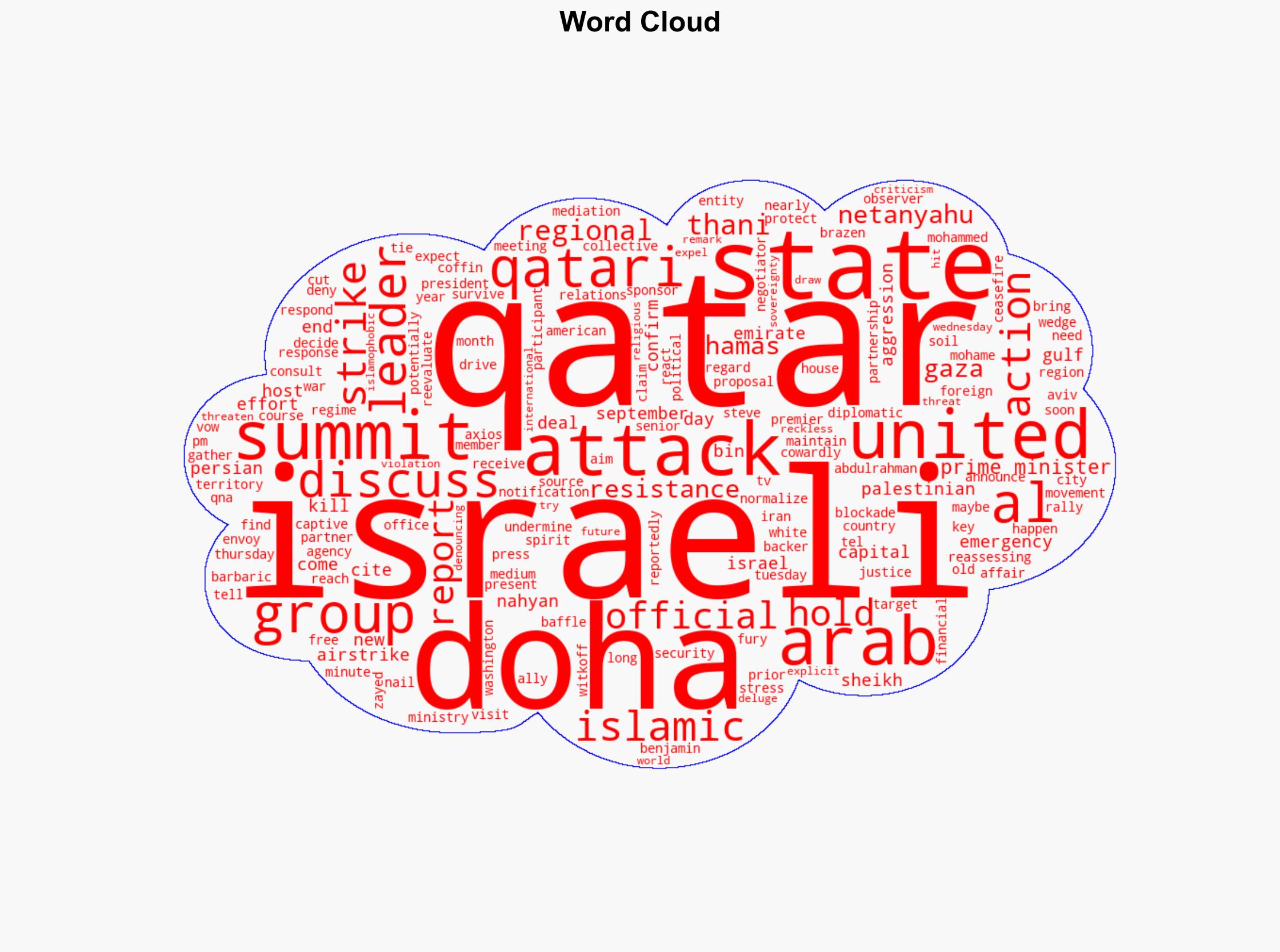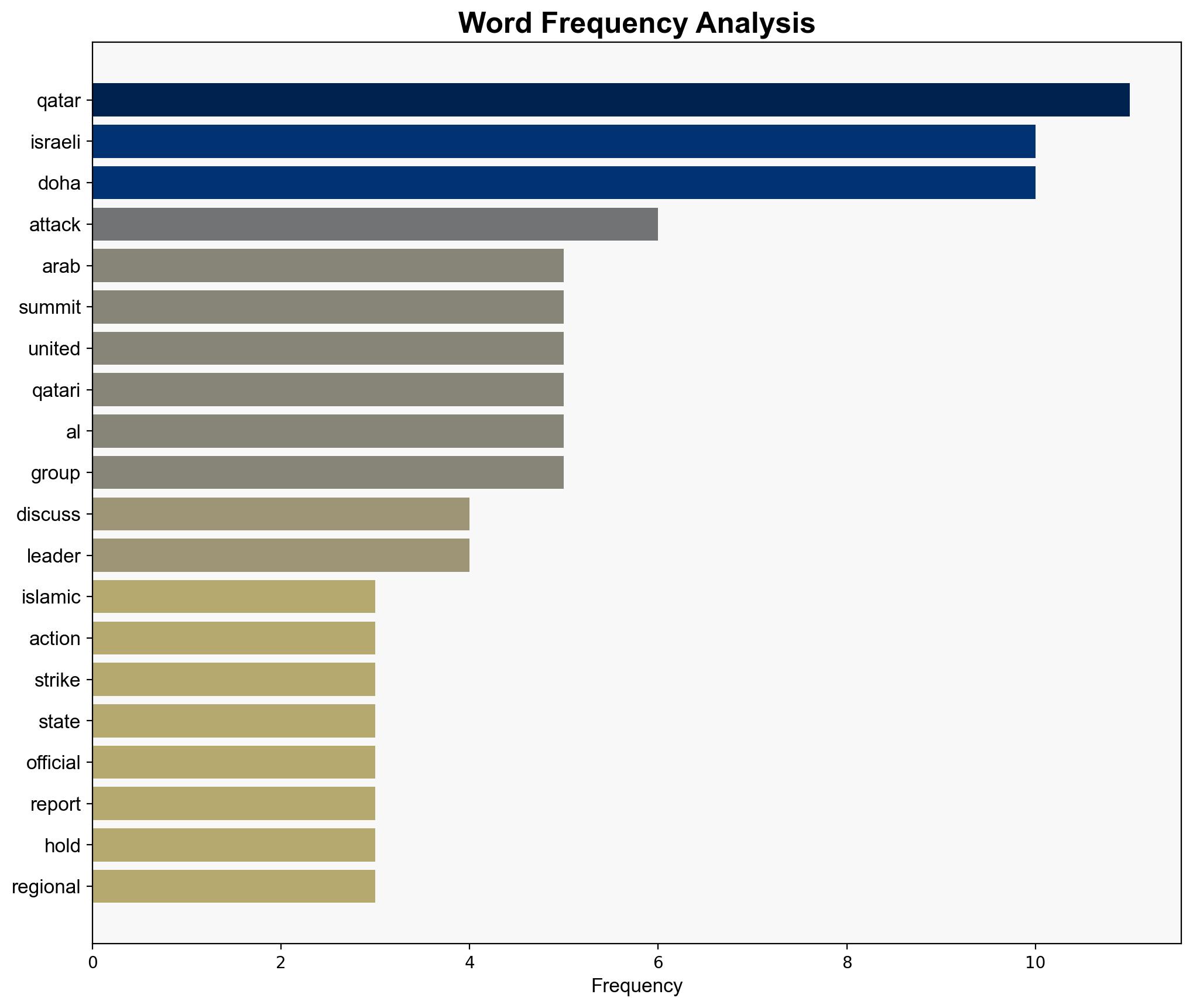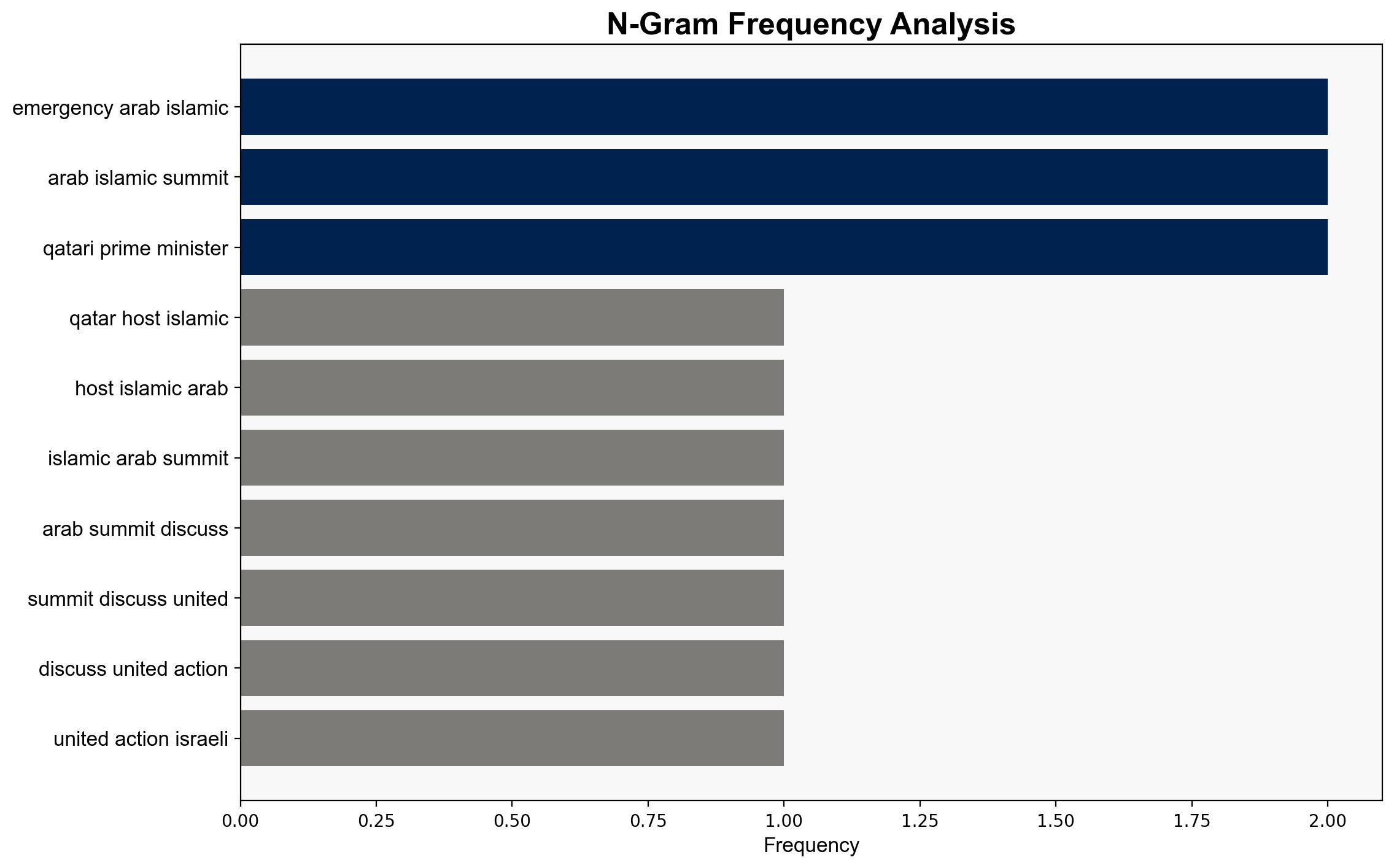Qatar to host Islamic-Arab summit to discuss ‘united action’ after Israeli strikes – Globalsecurity.org
Published on: 2025-09-12
Intelligence Report: Qatar to host Islamic-Arab summit to discuss ‘united action’ after Israeli strikes – Globalsecurity.org
1. BLUF (Bottom Line Up Front)
The most supported hypothesis is that Qatar is leveraging the summit to consolidate regional support and counterbalance Israeli actions, potentially reshaping alliances in the Middle East. Confidence in this assessment is moderate due to limited corroborative data. Recommended action includes monitoring the summit’s outcomes and preparing for shifts in regional alliances.
2. Competing Hypotheses
Hypothesis 1: Qatar is hosting the summit to unify Arab and Islamic countries against Israeli aggression, aiming to strengthen regional solidarity and potentially isolate Israel diplomatically.
Hypothesis 2: Qatar is using the summit as a strategic platform to reassess and possibly realign its security and diplomatic partnerships, particularly with the United States, in response to perceived threats and lack of prior notification about Israeli actions.
Using ACH 2.0, Hypothesis 1 is better supported by Qatar’s public statements and regional diplomatic efforts. However, Hypothesis 2 is plausible given Qatar’s expressed dissatisfaction with the U.S. and potential security realignments.
3. Key Assumptions and Red Flags
Assumptions include the belief that regional unity can effectively counter Israeli actions and that Qatar’s diplomatic efforts can influence broader geopolitical dynamics. Red flags include Qatar’s potential overestimation of regional unity and the risk of escalating tensions with Israel and its allies. The lack of detailed information on summit participants and agendas is a blind spot.
4. Implications and Strategic Risks
The summit could lead to increased diplomatic isolation of Israel, affecting regional stability. Economic implications may arise if diplomatic and financial ties are severed. Cybersecurity threats could escalate as regional tensions rise. Geopolitically, a realignment of alliances could alter the balance of power in the Middle East, potentially leading to increased U.S. involvement or withdrawal.
5. Recommendations and Outlook
- Monitor summit outcomes and regional diplomatic communications for signs of shifting alliances.
- Prepare for potential economic impacts if regional countries sever ties with Israel.
- Scenario Projections:
- Best Case: The summit leads to a peaceful resolution and strengthened regional cooperation.
- Worst Case: Diplomatic isolation of Israel escalates into broader conflict.
- Most Likely: Incremental shifts in alliances without immediate conflict escalation.
6. Key Individuals and Entities
– Sheikh Mohammed bin Abdulrahman Al Thani
– Benjamin Netanyahu
– Sheikh Mohamed bin Zayed Al Nahyan
– Steve Witkoff
7. Thematic Tags
national security threats, regional diplomacy, Middle East alliances, geopolitical strategy





